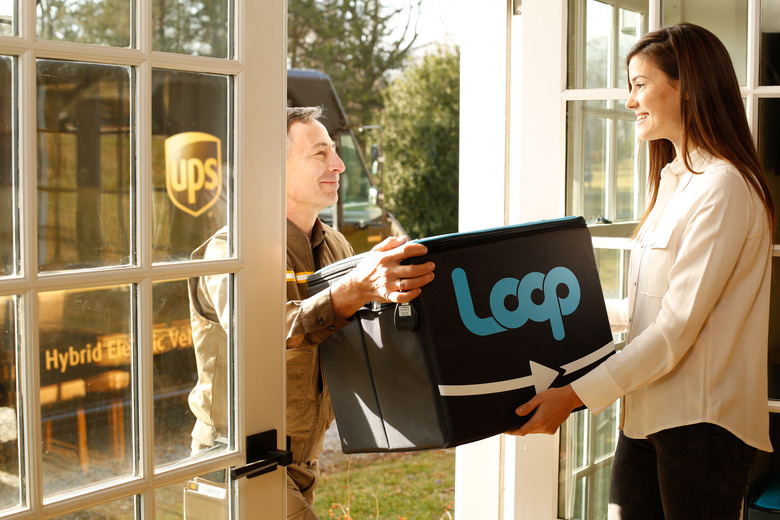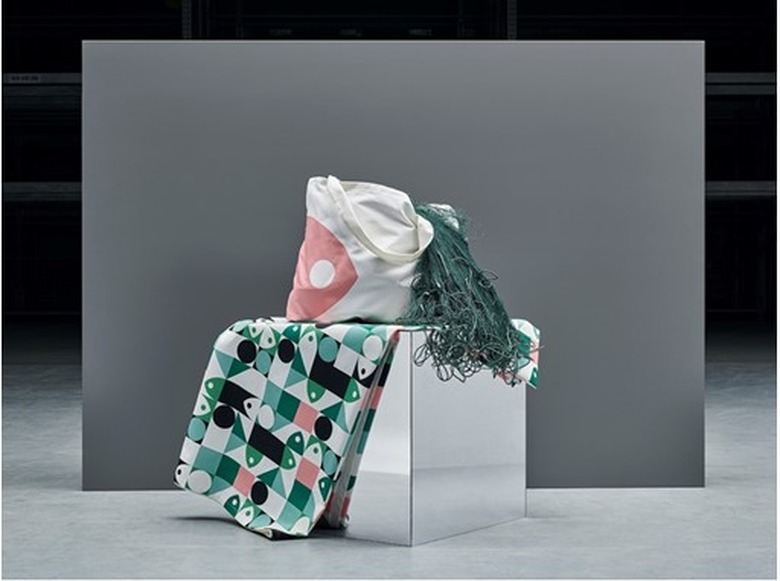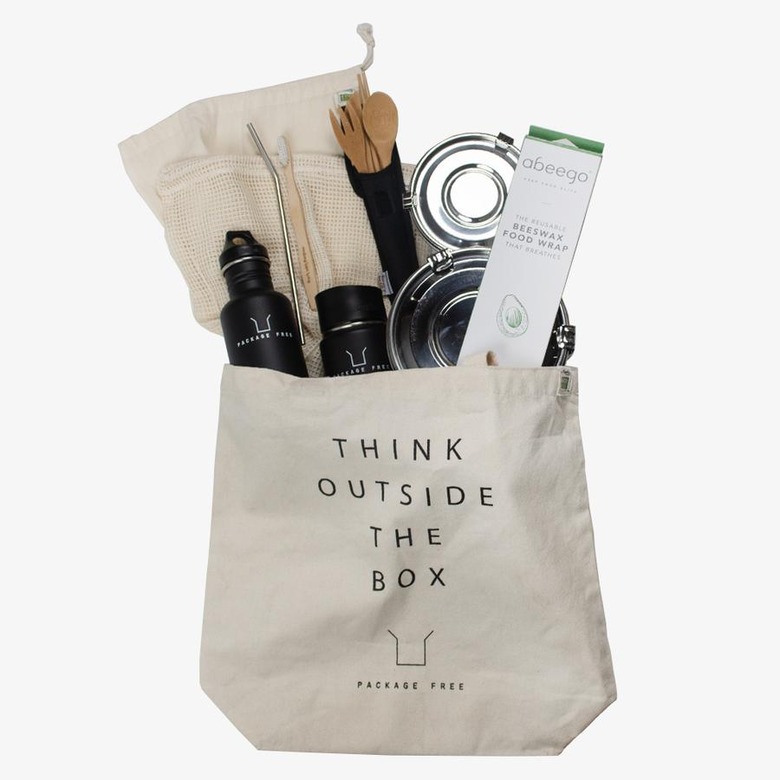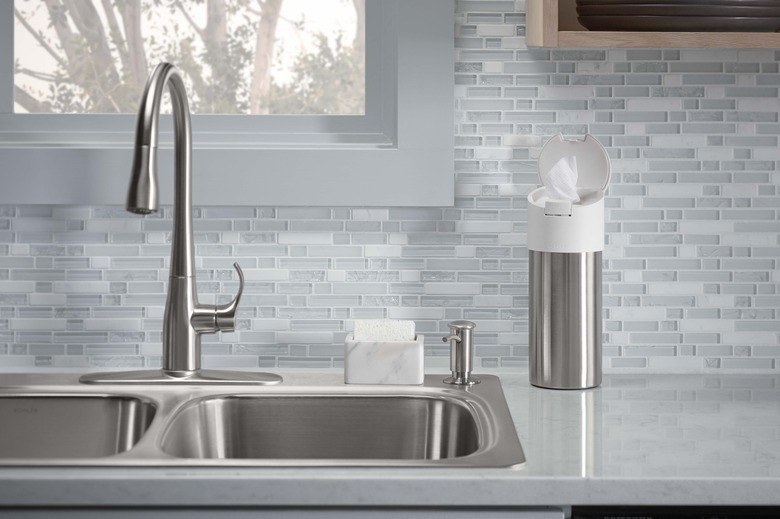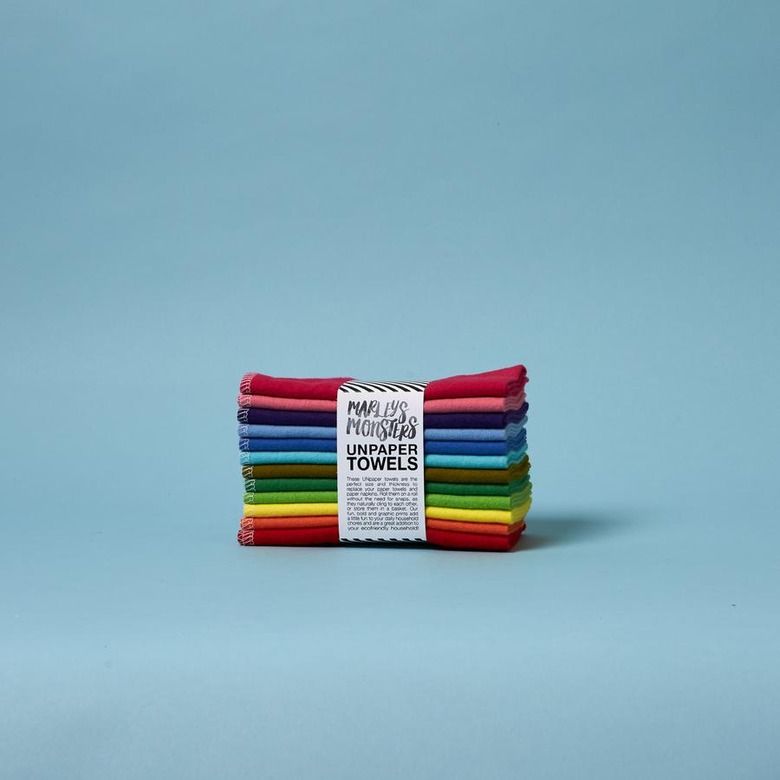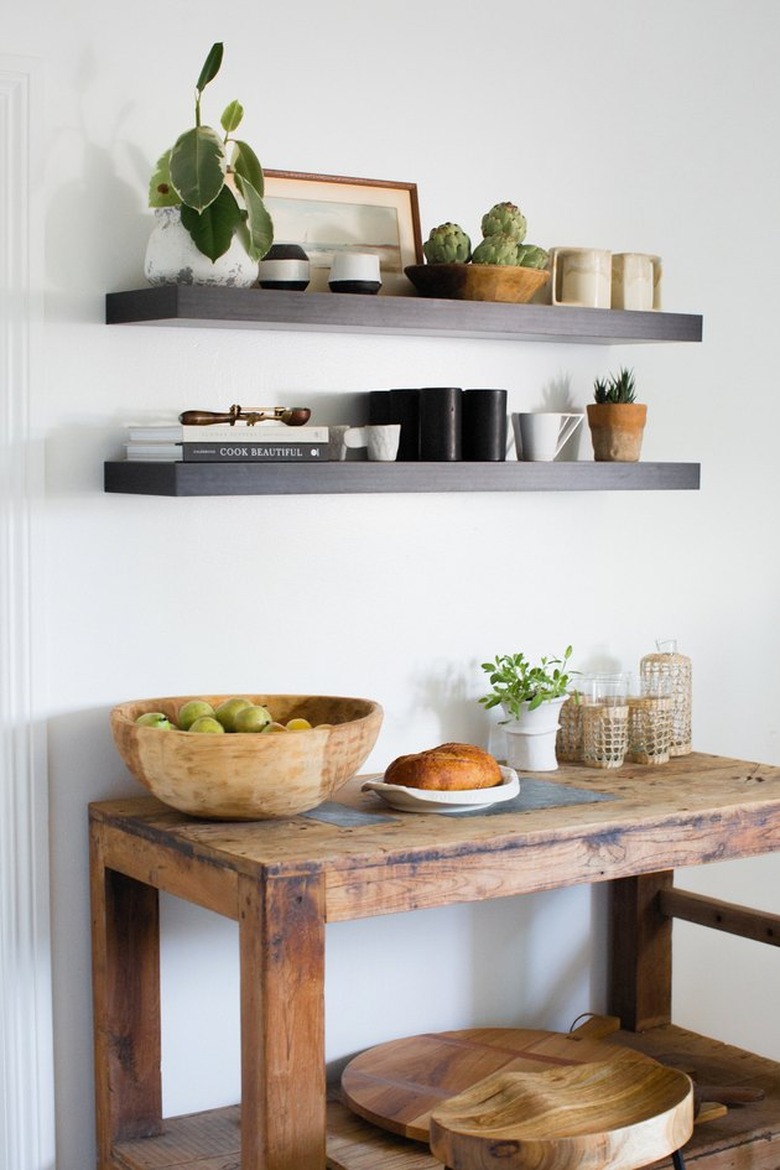The Eco-Friendly Shopping Revolution Is Only In Its Infancy
When you order or buy something new for your home — from Target, let's say, or even just your local grocery store — how much do you stop and think about the waste your purchase will produce?
You've probably seen the videos of marine animals trapped in plastic or heard the statistics. In 2017, a study published in Science Advances found that — on a global scale — only 9% of all plastic waste produced since 2015 had been recycled. Or, as the Royal Statistical Society puts it, 90.5% of plastic hasn't been recycled.
In 2016, CNN wrote about Lauren Singer, a proponent of the zero waste lifestyle. She managed to create only a 16-ounce mason jar's worth of waste over four years. Yup, everything else she recycled or found another use for.
While the average person can't get to that level overnight, it's obvious that the eco-friendly shopper is gaining momentum. This shopper wants to know more about the materials used in decor items; they want more eco-friendly packaging; and they want to feel good about their purchase. From big-name retailers to independent shops, businesses are trying to make it easier for consumers to shop more consciously. But is that enough for us to get there?
Eco-Friendly Online Shopping
Eco-Friendly Online Shopping
There's Blueland, a brand that creates low-waste cleaning products, and U Konserve, which designs products to reduce meal-related waste. Retailers like Anthropologie and Urban Outfitters carry eco-friendly items, making it possible to grab a metal straw and a new outfit in the same shopping trip. IKEA hopes to make all its products "circular" by 2030, meaning everything from materials to design would fall into the reusable or recycled categories.
You don't even have to leave your home to make more sustainable purchases. By Humankind offers subscription services with refillable containers for deodorant, shampoo, and mouthwash. Grove Collaborative delivers all-natural products like the Auto-Dosing Laundry Detergent Dispenser. You purchase the dispenser along with Grove laundry detergent and refill the container to reduce waste. But with more than 300 reviews, the product currently only has around a 3.3 out of five star rating.
The New York-based Package Free Shop — launched in 2017 by Singer — sells eco-friendly shave kits, starter kits, and lunch kits. The company says its shipping materials are completely recyclable and compostable.
But, of course, the process of getting items like these shipped to your home creates its own carbon footprint. And if you look around, you could probably spot another thing or two that is in single-use packaging that needs replacing. For these bigger items, the efforts might have to go beyond online shops.
Available at Your Doorstep
Available at Your Doorstep
Founded in 2001, recycling company Terracycle offers a way for consumers to recycle everything from plastic cups to action figures. The company launched Loop to work with big-name brands on a reusable packaging system. The products land at your door in a reusable Loop tote. You schedule a pick-up when you're done with them; Loop cleans the containers and refills them. The program launched in Paris and New York this past May.
Current offerings include items like Clorox Disinfecting Wipes and Häagen-Dazs ice cream. Real estate firm Brookfield Properties recently teamed up with Loop, offering the service to two of its buildings in Lower Manhattan and Brooklyn. Loop currently has more than 90,000 names on its waiting list.
"We want sustainability and buying products to be easy for consumers," Anthony Rossi, global VP of sales for Loop, tells Hunker. "Because in our experience, when you give a consumer a choice between a convenient option and a sustainable option, convenience usually wins." So far, Loop's growth has "coincided with consumer demand," and the company is looking to expand to more cities. But Rossi stresses that they are still in the "test and learn phase." It's all about seeing whether the idea will appeal to enough consumers.
"Consumers have to prove that they're willing to change," Rossi says.
Shopping Locally, the Eco-Friendly Way
Shopping Locally, the Eco-Friendly Way
Consumers are looking for this experience from smaller, independent stores as well. With locations in Los Angeles and New York, Otherwild — a queer-owned retail, event, and studio space — carries a curated selection of handmade goods. In April, the L.A. location unveiled Otherwild General, an area in the shop dedicated to eco-filling items and a refilling station.
"Apothecary items have always been amongst our top selling products, so this decision was central for me," Rachel Berks, owner of Otherwild, tells Hunker.
Otherwild General has been her long-time goal, and she hopes to launch a New York counterpart in early October. Featured makers include Everyday Oil — a brand of organic, plant-based skincare — and Noto Botanics, a line of gender-fluid cosmetics.
In 2017, Brianne Miller debuted the package-free grocery store Nada in East Vancouver after a series of pop-ups. Customers use smart scales to weigh their own containers before filling them up with coffee, bread, flour, nuts, shampoo, and more. According to the store's site, they've "diverted over 7,500 containers from [the] landfill."
You can also search directories for zero waste grocery shops near you, like this one that maps locations across all 50 U.S. states. Of course, not all neighborhoods will have one nearby (particularly those labeled as food deserts). And shopping at these stores requires a bit of preplanning.
Looking to the Future
Looking to the Future
Eco-friendly shopping and decor is all about changing habits. But it's also about who gets access to these resources and how successfully these efforts can scale. While small actions make a difference, it's still hard to tell how many large-scale efforts need to happen in the commerce space before we see a huge impact.
Joshua M. Pearce, who has a doctorate in materials engineering, is the director of the Michigan Tech Open Sustainability Technology (MOST) Lab and a professor of materials science and engineering and electrical and computer engineering. He is currently spearheading initiatives in distributed recycling and manufacturing; his team started working with re:3D to produce new items entirely from waste. A student recently turned shredded plastic into a skateboard deck for an electric skateboard.
"I think as these technologies become more popular (3D printing is already taking off and the distributed recycling technology is right behind it) — recycling will be something you do for yourself," Pearce shares. "Then everyday people will have a direct economic incentive to recycle rather than simply rely on good will to protect the environment."
It's also all about knowledge. Pearce says there's a lot of catching up to do on that front. "The plastics industry should adopt a more thorough classification system so more plastics can be taken out of the waste stream by consumers and small businesses," he says.
Other business owners point out an additional issue: packaging is just one way that household products can harm the environment.
"Dishwasher detergents are 30 to 40 percent phosphorus, which is extremely harmful to both humans and wildlife," Bella Middleton, founder of Norfolk Natural Living, tells us. "In an attempt to reduce its environmental impact, water and sewage treatment sites dedicate large amounts of resources to removing phosphorus and other toxic chemicals. This drastically increases the energy wastage and environmental strain of the water purification process."
Any major change relies on the company to rethink its own waste; the consumer's willingness to give up previously convenient shopping habits; and more information on what consumers are actually buying. With new efforts every day — from high-end designers to large corporations — the eco-friendly shopping conversation is just starting.
